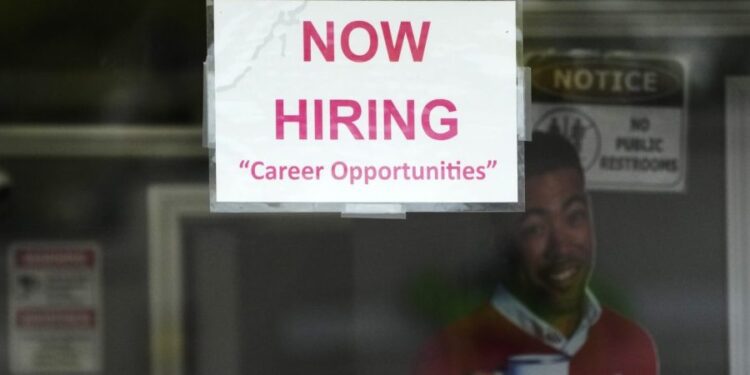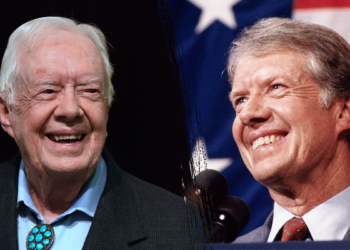
The number of people quitting their jobs fell in November to the lowest level since the height of the pandemic as the number of job openings popped to its highest level since May – both signs of a broader cooling in U.S. employment conditions.
People are staying in their jobs with greater frequency after significant churn in the labor market in recent years, Labor Department data shows.
Quits fell to just over 3 million, the lowest number since the summer of 2020, the Labor Department reported Tuesday. Job openings popped in November to 8.1 million from 7.8 million in October.
Economists noted the overall slowing trend after surprisingly strong performance in labor conditions throughout 2023.
“The rate of job openings across the labor market continues to moderate — a year ago, 5.4 percent of jobs were open, compared with 4.8 percent in November. During this period, hiring and quitting rates have also slowed,” Elizabeth Renter, senior economist at Nerd Wallet, wrote in a Tuesday commentary. “The labor market is just a bit cooler overall.”
Others saw the pop in openings as advantageous to workers while observing the cooler conditions overall.
Bankrate senior analyst Mark Hamrick called the numbers “good news for workers.”
“Job openings are on the rise as of last check, with a better-than-expected 8.1 million at the end of November. That’s an increase from the upwardly revised 7.8 million openings in the previous month. Even so, it marks a decline of more than 800,000 over the past year,” he wrote in an analysis.
The unemployment rate has risen to 4.2 percent, up from a low of 3.4 percent last year. The next jobs report from the Labor Department comes out Friday.
While the broader trend of a cooling labor market continues, there has been some life recently in weekly unemployment insurance claims.
Jobless claims fell to their lowest level in eight months to end 2024. New jobless claims filed the week ending Dec. 28 numbered 211,000, down 9,000 from the previous week’s level. Unemployment insurance numbers can be a bit more volatile toward the end of the year as seasonal hiring occurs.







